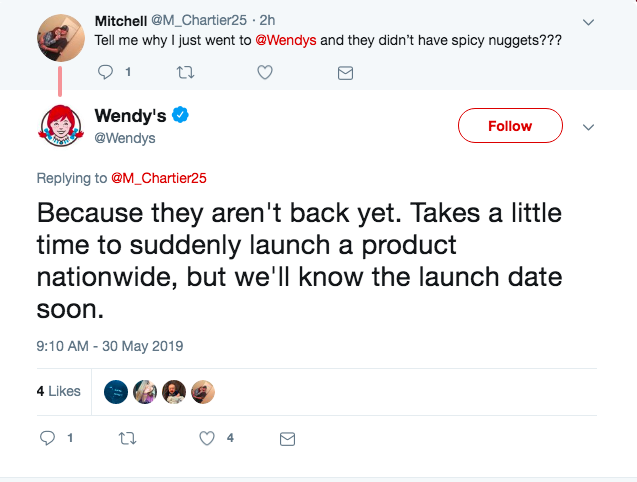This guest post is provided by Manish Dudharejia
Got a Bad Customer Review? 4 Reasons Why It Might Actually Be a Good Thing
If you’re a business owner with an online presence, then you probably know that sinking feeling you get when you stumble across an unfavorable review. It happens to everyone, and if you’re not careful, one negative review can drive away future customers. That’s why you need to act quickly to minimize the damage and protect your online reputation.
Earning a bad review from a customer isn’t the worst thing in the world, as long as you respond appropriately. In fact, it can even be a positive addition to your reputation and marketing techniques. Here are four reasons why you might actually benefit from an angry or rude customer’s feedback.
1. Your Response Can Help Your Reputation
The manner in which your business responds to criticism can be just as important as obtaining good reviews. Moreover, Google has confirmed that responding to reviews helps to improve SEO value!
In some cases, it’s even more important because it speaks volumes about your character and company morals. You have the power to turn around a negative sentiment and shed some positive light on your company, as long as you play your cards right.
For example, take a look at one of these Trustpilot reviews.
The consumer voices a few negative opinions about the company mixed in with positive feedback, and a representative quickly handles the situation in a respectful, appreciative manner. The representative addresses the reviewer by his first name, expresses gratitude, and even says that she will pass along the feedback to the team for further investigation. This makes the reviewer feel heard by the business.
Even if you believe that the customer was in the wrong, you need to voice your appreciation for their patronage and feedback. Then, actively work to remedy the situation.
As long as you can resolve the mistake professionally, Hubspot has found that 98 percent of customers will continue doing business with you despite their initial complaints.
2. It Shines a Light on Your Business’s Weakest Links
Whether you like it or not, bad reviews happen for a reason. They indicate that something went wrong, whether it was an issue with the product itself or the service your employees provide. That’s why it’s so important that you follow up the review with an objective investigation into the situation.
Find out what went wrong and why, then determine how you can prevent that same issue from recurring in the future. Instead of being disheartened by the negative feedback, view it as an opportunity to identify weak spots and eradicate them before they have the chance to make your business lose money. That’s certainly easier said than done, but a business’s willingness to learn from its mistakes is a huge indicator in its potential for long-term success.
Even if the issue wasn’t technically your fault, there are still lessons you can learn from the situation. Maybe you can teach employees how to better handle customers who are being unfair or you can find a way for reviewers to voice their feedback without publicly shaming the business. No review is completely worthless, as long as you take advantage of the situation.
That being said, sometimes slanderous and wholly incorrect scenarios do occur, and when that happens, you should learn what you can from the situation before doing something about it. Consider taking action to remove articles online to prevent your company from further public shaming or defamation.
3. A Healthy Mix Makes You More Trustworthy
If you’re like most business owners, you want to earn as many gold stars on your profile as possible. Understandably, people like to visit businesses with high ratings on their favorite review platforms. You need those five-star reviews to polish your reputation.
However, five-star ratings alone won’t earn you the trust you want. Customers actually tend to find it unnerving when a business only has perfect reviews. They’ll wonder if the company paid for fake feedback or if they only had friends and family review the business. After all, no business is perfect, and even if they are, customers will always find something to pick on.
Additionally, customers like to read bad reviews. According to BrightLocal’s 2018 study, nearly all shoppers between the ages of 18 and 34 read review responses to learn more about a business. People enjoy seeing a healthy mix of positive and negative feedback so they can form a realistic, comprehensive idea of the business before becoming a patron.
4. It Can Actually Be Great Marketing
We’ve all seen those Tweets and comments that have gone viral from brands that get a little sassy or humorous in their feedback to overtly angry customers. Although this is a slightly risky strategy, adding a dash of comedy or brutal honesty to your response can be a great marketing technique in certain situations. For example, take a look at this response to a critique from Patagonia.
The reviewer inaccurately calls the clothing brand out for sending out non-environmentally-friendly catalogs, and the brand responds with a bit of snark as well as a solution for the criticizer. Notice how Patagonia wasn’t technically rude in the response, but it was clear about its explanation and morals without admitting any fault.
Another great example of a brand that constantly interacts with customers in a humorous manner is Wendy’s, the hamburger chain. They’ve been caught with so many sarcastic, viral responses that it’s basically expected they’ll roast anyone who calls them out inaccurately.

Both of these companies, and many others, use bad reviews and online sentiment as a marketing strategy. This has actually won them more customers than they lost due to the negative feedback. If they can do it, so can smaller brands. It’s just about walking that thin line between being rude and being funny – do it tactfully and you might actually see an increase in conversions after critiques.
To Sum It All Up
When you stumble across a review that calls out your business, either fairly or unfairly, don’t despair and ignore it. Instead, leap at the opportunity to build your online reputation and improve your customer service. By publicly responding to criticism, you’ll show customers that your business cares about its buyers and their opinions. Plus, you may even gain a little extra attention from potential customers who appreciate your effort.
Guest Post Bio: Manish Dudharejia is the President and Founder of E2M Solutions Inc, a San Diego Based Digital Agency that specializes in Website Design & Development and eCommerce SEO. With over 10 years of experience in the Technology and Digital Marketing industry, Manish is passionate about helping online businesses to take their branding to the next level.


